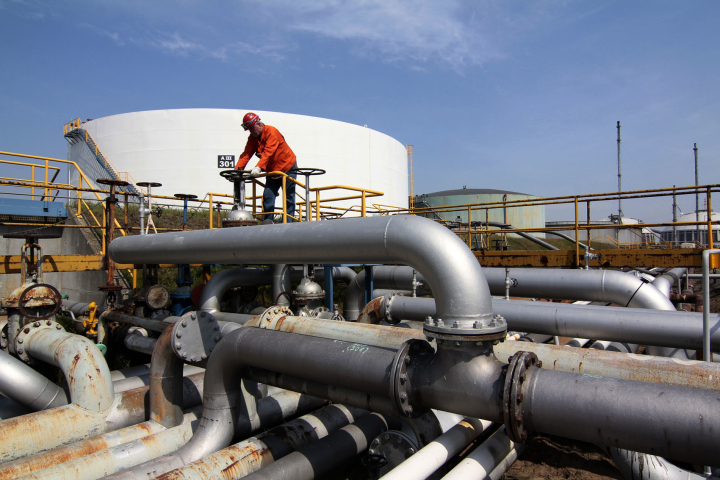The natural gas industry offers a multitude of rewarding career paths. If you’re looking to leverage your skills and knowledge into a high-paying position, this sector is brimming with opportunities. However, many of the most lucrative roles require a combination of advanced education and extensive experience.
This article explores eight of the highest-paying jobs in the natural gas distribution industry, delving into their responsibilities, educational requirements, and average yearly salaries. We’ll also provide insights into how you can pave your way towards these coveted positions.
1. Project Manager: Leading the Charge
Average Yearly Salary: $197,000
Project managers are the backbone of any successful natural gas project. They oversee the entire operation, ensuring it stays on track, adheres to budget constraints, meets project specifications, and prioritizes safety from start to finish. Their responsibilities include:
- Developing and implementing project plans
- Managing project teams and resources
- Monitoring project progress and budget adherence
- Identifying and mitigating potential risks
- Facilitating communication between stakeholders
Becoming a Project Manager:
To become a project manager in the natural gas industry, a bachelor’s degree in engineering is typically preferred. Earning a project management certification or possessing at least ten years of experience managing projects within the petroleum sector can also significantly enhance your candidacy.
2. Drilling Supervisor: Ensuring Efficiency and Safety Underground
Average Yearly Salary: $186,000
Drilling supervisors are the critical link between project plans and successful well completion. They take charge of the entire drilling operation, guaranteeing that the project is finished on schedule while upholding safety and efficiency standards. Their core tasks involve:
- Leading and supervising drilling crews
- Ensuring adherence to drilling plans and procedures
- Monitoring wellbore integrity and safety protocols
- Optimizing drilling performance and efficiency
- Communicating effectively with project managers and other stakeholders
Educational Requirements for Drilling Supervisors:
While a bachelor’s degree isn’t mandatory for drilling supervisors, extensive experience in the field is a prerequisite. Some employers may prefer candidates with degrees in drilling technology or mechanical engineering.
3. Reservoir Engineer: Optimizing the Flow of Natural Gas

Average Yearly Salary: $172,000
Also known as petroleum or pipeline engineers, reservoir engineers play a crucial role in maximizing the flow of natural gas from reservoirs. They employ specialized tools and equipment to identify, assess, and continuously monitor and optimize oil and gas reserves throughout the drilling process. Their key responsibilities include:
- Evaluating and characterizing oil and gas reservoirs
- Designing and implementing strategies for optimal wellbore placement
- Developing reservoir simulation models
- Monitoring reservoir pressure and production
- Recommending methods for maximizing production efficiency
Becoming a Reservoir Engineer:
Reservoir engineers typically hold a bachelor’s degree in geology, engineering, petroleum engineering, or a related field. Additionally, at least two years of experience in the oil and gas industry is generally expected.
4. Drilling Engineer: A Multifaceted Role
Average Yearly Salary: $162,000
Drilling engineers manage rig staff and shoulder the responsibility of assessing and maintaining wells. They also play a vital role in ensuring the implementation of safety measures throughout the drilling process. Their duties encompass:
- Planning and overseeing drilling operations
- Evaluating wellbore conditions and potential risks
- Designing and implementing well-completion plans
- Managing the technical and financial aspects of drilling projects
- Ensuring adherence to safety regulations and procedures
Educational Background for Drilling Engineers:
A minimum requirement for becoming a drilling engineer is a bachelor’s degree in engineering. Prior experience as a field engineer or production engineer can be highly beneficial.
5. Natural Gas Engineer: Designing for Efficiency and Sustainability
Average Yearly Salary: $154,000
Natural gas engineers contribute significantly to the planning, equipment selection, and design processes within the natural gas industry. They develop, install, and maintain equipment used for processing natural gas, prioritizing safety, reliability, quality, and sustainability. Their core responsibilities involve:
- Designing and selecting equipment for natural gas processing facilities
- Ensuring the safe and efficient operation of processing plants
- Developing and implementing quality control measures
- Optimizing the environmental impact of natural gas processing
- Staying updated on industry advancements and technological innovations
Educational Requirements for Natural Gas Engineers:
A bachelor’s degree in mechanical engineering is the minimum educational requirement for a career as a natural gas engineer.

